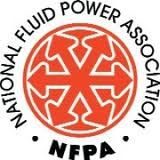NFPA Updates Research Agenda

In August 2009, the National Fluid Power Association (NFPA) published the Technology Roadmap for the Fluid Power Industry. The purpose of the Roadmap was to provide NFPA member companies and their research partners with an industry-wide consensus regarding the research and development needs of the fluid power industry. Since its publication, the Roadmap has been used by the NFPA Education and Technology Foundation and the Center for Compact and Efficient Fluid Power (CCEFP) to guide their respective research efforts, by NFPA to guide its standards development work, and by numerous NFPA members to inform decisions about research partnerships and product development.
Now, three years later, NFPA is releasing an updated document that revisits the six broad areas of Research Challenge identified by the original Roadmap. The update is the product of an NFPA task force comprised of fluid power component manufacturers, equipment manufacturers, and end-user representatives. In preparing its recommendations, the task force discussed research and market progress since 2009; reviewed customer feedback from a forum hosted by NFPA at the 2011 Energy Efficient Hydraulics and Pneumatics Conference, and defined and consulted a new definition for pre-competitive research projects. In its final analysis, the task force agreed to several revisions to the six Challenges, and organized them into categories to reflect the primary strategy that should be pursued in order to address each one.
The Research Challenges are:
(1) Increasing the energy efficiency of fluid power components and systems;
(2) Improving and applying energy storage capabilities; and
(3) Reducing the size of fluid power components and systems.
Although the task force report suggests several market education and standardization initiatives to assist in addressing these challenges, it prioritizes pre-competitive research discovery applied to new technology development as providing the greatest potential benefit in these areas.
The Market Education Challenges are:
(1) Building “smart” components and systems;
(2) Improving the reliability of fluid power components and systems; and
(3) Reducing the environmental impact of fluid power components and systems.
To view the full report, visit the website below:
Industry NewsNow, three years later, NFPA is releasing an updated document that revisits the six broad areas of Research Challenge identified by the original Roadmap. The update is the product of an NFPA task force comprised of fluid power component manufacturers, equipment manufacturers, and end-user representatives. In preparing its recommendations, the task force discussed research and market progress since 2009; reviewed customer feedback from a forum hosted by NFPA at the 2011 Energy Efficient Hydraulics and Pneumatics Conference, and defined and consulted a new definition for pre-competitive research projects. In its final analysis, the task force agreed to several revisions to the six Challenges, and organized them into categories to reflect the primary strategy that should be pursued in order to address each one.
The Research Challenges are:
(1) Increasing the energy efficiency of fluid power components and systems;
(2) Improving and applying energy storage capabilities; and
(3) Reducing the size of fluid power components and systems.
Although the task force report suggests several market education and standardization initiatives to assist in addressing these challenges, it prioritizes pre-competitive research discovery applied to new technology development as providing the greatest potential benefit in these areas.
The Market Education Challenges are:
(1) Building “smart” components and systems;
(2) Improving the reliability of fluid power components and systems; and
(3) Reducing the environmental impact of fluid power components and systems.
To view the full report, visit the website below:





